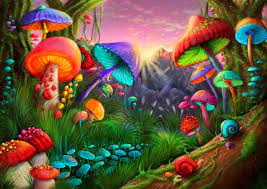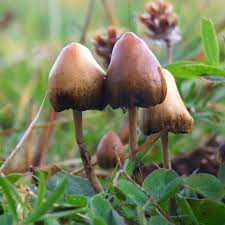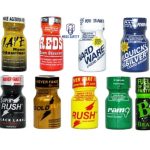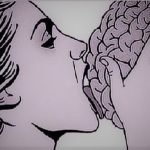Magic Mushrooms (Shrooms) Effects and Risks

Magic mushrooms, also known as psilocybin mushrooms or simply shrooms, are a type of fungi that contain psychoactive compounds such as psilocybin and psilocin. These compounds are hallucinogens and can alter perception, mood, and cognition when consumed.
Psilocybin mushrooms have a long history of use in various cultures for spiritual and ceremonial purposes. They have been used for thousands of years by indigenous tribes in different parts of the world, particularly in Central and South America. In modern times, magic mushrooms have gained popularity for their recreational and therapeutic effects. Psilocybin mushrooms belong to several biological genera, including Copelandia, Gymnopilus, Inocybe, Panaeolus, Pholiotina, Pluteus, and Psilocybe. Throughout history, these mushrooms have been utilized by indigenous cultures in the New World for religious, divinatory, and spiritual purposes, and this tradition persists to this day.
When ingested, psilocybin is converted into psilocin, which acts on serotonin receptors in the brain. This interaction leads to changes in the brain’s activity and communication, resulting in altered sensory perception, enhanced introspection, and potentially profound spiritual or mystical experiences.
Psilocybin, as classified by the United Nations 1971 Convention on Psychotropic Substances, is categorized as a Schedule I controlled substance. This classification implies that it is deemed to have a high potential for abuse and lacks recognized medical applications. In 2006, researchers from the John Hopkins Center for Psychedelic and Consciousness Research conducted a groundbreaking study on the safety and positive effects of psilocybin, shedding light on its potential benefits.
In October 2020, Oregon became the first state to legalize psilocybin, allowing for a two-year period to establish regulations and prescribing requirements. While psilocybin is not considered addictive by medical bodies, users may experience distressing hallucinations, anxiety, and panic as potential side effects of its use.
How Long Do Mushrooms Stay in Your System?
The duration of time that mushrooms (specifically psilocybin and psilocin) stay in your system can vary depending on several factors. Here’s a general timeline:
- Detection in urine: Psilocybin and its metabolite psilocin can typically be detected in urine for up to 1 to 3 days after use. However, this timeframe may vary based on factors such as individual metabolism, dosage, frequency of use, and sensitivity of the testing method.
- Detection in blood: Psilocybin and psilocin can be detected in blood for a shorter period compared to urine. They are typically detectable for about 1 to 24 hours after ingestion.
- Detection in hair: Psilocybin and psilocin can potentially be detected in hair for a longer duration, as hair tests have a wider detection window. They can be detectable in hair for up to 90 days or even longer, depending on the length of the hair sample.
It’s important to note that these are general guidelines and individual variations can occur. The presence of mushrooms in the body does not necessarily indicate impairment or intoxication, as the effects of psilocybin usually last for about 4 to 6 hours, with residual effects gradually diminishing over time.

What are the effects of ‘Magic Mushroom’ use?
The effects of magic mushrooms that contain psychoactive compounds like psilocybin and psilocin can vary from person to person and depend on factors such as dosage, set (mindset), setting (environment), and individual sensitivity. Here are some common effects:
1. Altered Perception: Magic mushrooms can cause alterations in sensory perception, leading to changes in how one perceives their surroundings. This can include intensified colors, enhanced visual patterns, and distorted perceptions of shapes and sizes.
2. Euphoria and Mood Enhancement: Many users experience a sense of euphoria, joy, and heightened emotions while under the influence of magic mushrooms. Positive feelings and an increased appreciation for beauty in the environment are also commonly reported.
3. Introspection and Spiritual Experiences: Magic mushrooms have been associated with deep introspection and introspective insights. Some users may have profound spiritual or mystical experiences, a sense of interconnectedness, and a feeling of being in touch with something greater than themselves.
4. Enhanced Creativity: Many individuals report increased creativity and imaginative thinking while using magic mushrooms. This can manifest in artistic expression, problem-solving, and the generation of novel ideas.
5. Emotional Effects: Magic mushrooms can amplify emotions, leading to intensified feelings of both joy and sorrow. Some users may experience emotional breakthroughs, catharsis, or increased empathy and emotional sensitivity.
6. Changes in Time Perception: The subjective experience of time can be altered, with minutes feeling like hours or hours passing by quickly.
7. Heightened Sensory Experience: Magic mushrooms can enhance sensory perception, making everyday experiences such as listening to music or observing nature more vivid and intense.
8. Potential for Anxiety or Confusion: In some cases, magic mushrooms can induce feelings of anxiety, confusion, or paranoia, particularly at higher doses or in an unfamiliar or uncomfortable setting. These effects are often influenced by the user’s mindset and the environment.
It is important to note that the effects of magic mushrooms can be unpredictable and vary from person to person. The use of these substances should always be approached with caution, in a safe and responsible manner, and in compliance with legal regulations.
Health Risk Of Magic Mushrooms
While magic mushrooms can produce a range of effects, it’s important to be aware of potential health risks associated with their use. Here are some potential risks:
1. Psychological Distress: Magic mushrooms can induce psychological effects that may be challenging or distressing for some individuals. These can include anxiety, confusion, paranoia, and even acute psychotic reactions, particularly in high doses or in individuals who are predisposed to mental health conditions.
2. Risky Behavior: Under the influence of magic mushrooms, individuals may engage in risky behaviors due to impaired judgment and altered perception. This can include accidents, dangerous activities, or engaging in unsafe sexual practices.
3. Flashbacks and HPPD: Some users may experience flashbacks, which are spontaneous reoccurrences of psychedelic effects, even after the drug has left their system. Additionally, a rare condition known as Hallucinogen Persisting Perception Disorder (HPPD) can occur, where individuals experience prolonged visual disturbances or perceptual changes even without recent drug use.
4. Interaction with Medications: Magic mushrooms may interact negatively with certain medications or substances, such as antidepressants or MAO inhibitors, leading to potentially serious health consequences. It is essential to consult a healthcare professional if you are taking any medications or have any underlying health conditions.
5. Accidental Ingestion and Misidentification: Picking and consuming wild mushrooms can be extremely dangerous, as some poisonous species closely resemble magic mushrooms. Misidentification can lead to severe illness, organ damage, or even death. It is crucial to acquire mushrooms from reliable and trusted sources.
6. Risks of Self-Treatment: Using magic mushrooms for self-treatment of mental health conditions or other medical purposes without professional guidance can be risky. While research shows promising therapeutic potential, self-administration without proper support and supervision may not yield the desired outcomes and can lead to adverse effects.
7. Legal Consequences: It’s important to be aware of the legal status of magic mushrooms in your jurisdiction. In many countries, their use, possession, or distribution is illegal. Legal consequences can range from fines to imprisonment, depending on local laws.
If you have concerns about the health risks associated with magic mushroom use, it is advisable to consult with a healthcare professional or seek guidance from a qualified and experienced substance use counselor. They can provide personalized information and help you make informed decisions.




